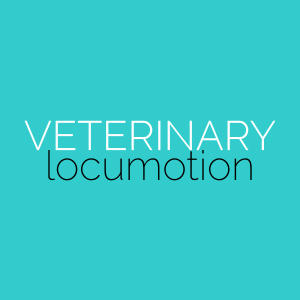Like many practice owners, you may be finding yourself a bit short-staffed these days. As the demand for veterinary services increases, there simply aren’t enough Veterinarians, Veterinary Nurses and Technicians to fill every single open position. In many practices, this shortage means temporarily relying on the help of a locum relief team member. While locum relief Veterinary Professionals can offer tremendous value to your practice and help with filling in gaps, they can also be in short supply. Depending on your location, there may be a limited number of locum relief vets, nurses and techs in your area, and there might be a surprisingly large number of practices courting them. Learn how you can make your practice stand out, improving your likelihood of finding, attracting and keeping high-quality locum relief team members…
Setting boundaries: 7 key steps for balancing work, life & play
Setting boundaries means being honest about what you can and cannot handle right now…and often that is a daunting admission…an admission that we are indeed human, have our limitations and need to be constantly balancing and rebalancing work, life and play. Perhaps if we all learned how to set and respect boundaries, we could foster more mutual respect and compassion amongst each other, rather than resentment or anger. And we might just add another small but important facet towards improving the overall mental health of the veterinary profession. Here are some key steps toward setting mutually beneficial boundaries…
New Veterinary Career? 7 Ways to Kick Start Things (or Give Help)
So, you’ve worked hard and earned your certification. Congratulations, you are now a qualified Veterinarian, Veterinary Nurse or Veterinary Technician. But now, a whole new challenge lies ahead – continuing your momentum and success as you start this next stage of your career as a working Veterinary Professional! Making the transition from student to practicing in-the-real is an exciting time, but it can also be understandably daunting. During your first year of employment especially, a great support network is invaluable. Helpful colleagues, accessible professional resources, and some mindful self-care will not only kick-start your career but will also support your mental and physical health during a potentially stressful time. So, to help you feel more grounded, calm, and in control of your journey, here are a few early veterinary career tips that we sourced from Veterinary Professionals like you who have “been there, done that” and not just survived, but thrived…
How to ensure Locum Relief Vets, Nurses & Technicians return Time After Time
You know that sinking feeling. You have an unexpected gap in your shift scheduler, staring back at you, expecting to be magically filled. Or you know deep down that it’s time to ease the workload in your practice and give your permanent team members that well-earned R&R they well-and-truly deserve. You need an experienced, reliable locum relief veterinary professional, one that is worth their weight in gold. But even better – and we are talking platinum grade here – is an experienced, reliable locum relief professional already familiar with your protocols, facilities, team and clientele, who can hit the ground running. And for Locum Relief Vets, Nurses and Technicians, discover how to set the scene for your Locum Relief contracts. Here are six ways to attract the most valuable locum relief talent to your practice and ensure their visit is more than just a one-shift wonder…
If you could travel back in Time, what would you tell yourself?
Here you are, still relatively early in your veterinary career. You’re making it, not faking it nowadays. Still, every so often, there’s a curly medical situation, or a brief moment of self-doubt or you come across a more seasoned Vet, Nurse, or Tech who seems to have all the answers right at their fingertips. You don’t have “imposter syndrome” exactly, but you occasionally find yourself wondering how you will ever achieve that level of expertise…that combination of experience, grace, and talent that will one day fill you to overflowing with the confidence to deliver best-practice veterinary care, all day, every day. Fortunately, courtesy of a bubble in the space-time continuum, the experienced, talented, and confident future you has sent these gems of wisdom back for you to build on. So, heads up…
Making Veterinary Locum Relief Work Work for You
Veterinarians, Veterinary Nurses, and Veterinary Technicians are drawn to locum relief work for a wide variety of reasons. Some individuals want to focus on maximizing income, while others want to maximize flexibility and work-life balance. Regardless of what draws you to relief medicine, it’s important to ensure that you are running your relief business in a way that reflects what you hope to get out of the profession. Consciously evaluating your business strategy is not only important for vets, nurses, and vet techs that are new to the locum relief world, but also for those who have been in the veterinary relief field for years. Thinking consciously about your business will ensure that your locum relief career is working for you. Locum relief work is often recognized as a source of better pay, reduced work stress, and the ability to set your own schedule, but these benefits don’t come automatically. Learn how to maximize the benefits of locum work, while minimizing relief-related headaches…
You Know It’s Time to Find a New Job When…
You already know that working as a veterinary professional is one of the most rewarding jobs there is. In fact, a 2020 study found that veterinarians, nurses, and veterinary technicians achieve much of their job satisfaction not from their paycheck, but from their pride in their work and the knowledge that they are making a positive contribution to the lives of others. The joy of saving a critically injured pet or discovering a treatable illness before it’s “too late” pushes veterinary professionals like you to give your job everything you have. However, it can be a real effort to keep your spirits up when you are constantly pushed to your limits and when the challenging days outnumber the good days. Occasional frustrations are inevitable, but frequent issues can quickly turn your dream job into a nightmare. So how do you know when it’s time to move on from a job that is no longer a good fit? Here are some significant hints…
Veterinarian Salary Survey – USA, United Kingdom & Australia
To attract, develop and retain veterinary professional talent – Vets, Nurses and Techs – it’s essential that you get compensation and benefits right. Although salary and pay scales are not the sole driver of recruitment success or job satisfaction, they remain a key element, together with flexible scheduling, a supportive and collaborative team and a genuine commitment to work-life balance and more. This Veterinarian Salary Survey is prepared twice yearly in January and July and is assembled from a range of publicly available sources together with data from our sister Business Unit, VET&PET jobs Marketplace, so as to provide a broad guide to employees and employers as to the overall market and any variance in half-yearly trends. Discover more…
What are the different kinds of Veterinary Jobs & Careers?
Working in the veterinary industry, it’s probably safe to say that you really like (or even love) animals! Your passion and compassion are admired by so many. But sometimes things can be overwhelming, not just in clinical practice but in veterinary pharmaceuticals, agriculture, lab work and more. Before you decide to put your stethoscope away forever, before hanging up your veterinary nurse magic utility belt or switching off your microscope for all time…don’t go…the industry needs you. But maybe it’s time to consider a different angle. If you are in pharmaceuticals, perhaps it’s time to change to clinical practice, or if you are in private practice, maybe it’s time to consider a public veterinary health role. Whether you’re particularly detail-oriented or more focused on “the big picture”; wanting to flex your science brain or your creative side; an intellectual problem-solver or a nurturer; or seeking a sociable daily working hub or a quiet office environment where you can focus, there’s likely a veterinary job to meet your ideal career and work-life balance needs. So whether you are a veterinarian, veterinary nurse, or technician or just love working with animals, here are a few of the many ways you can still work within the veterinary industry…









